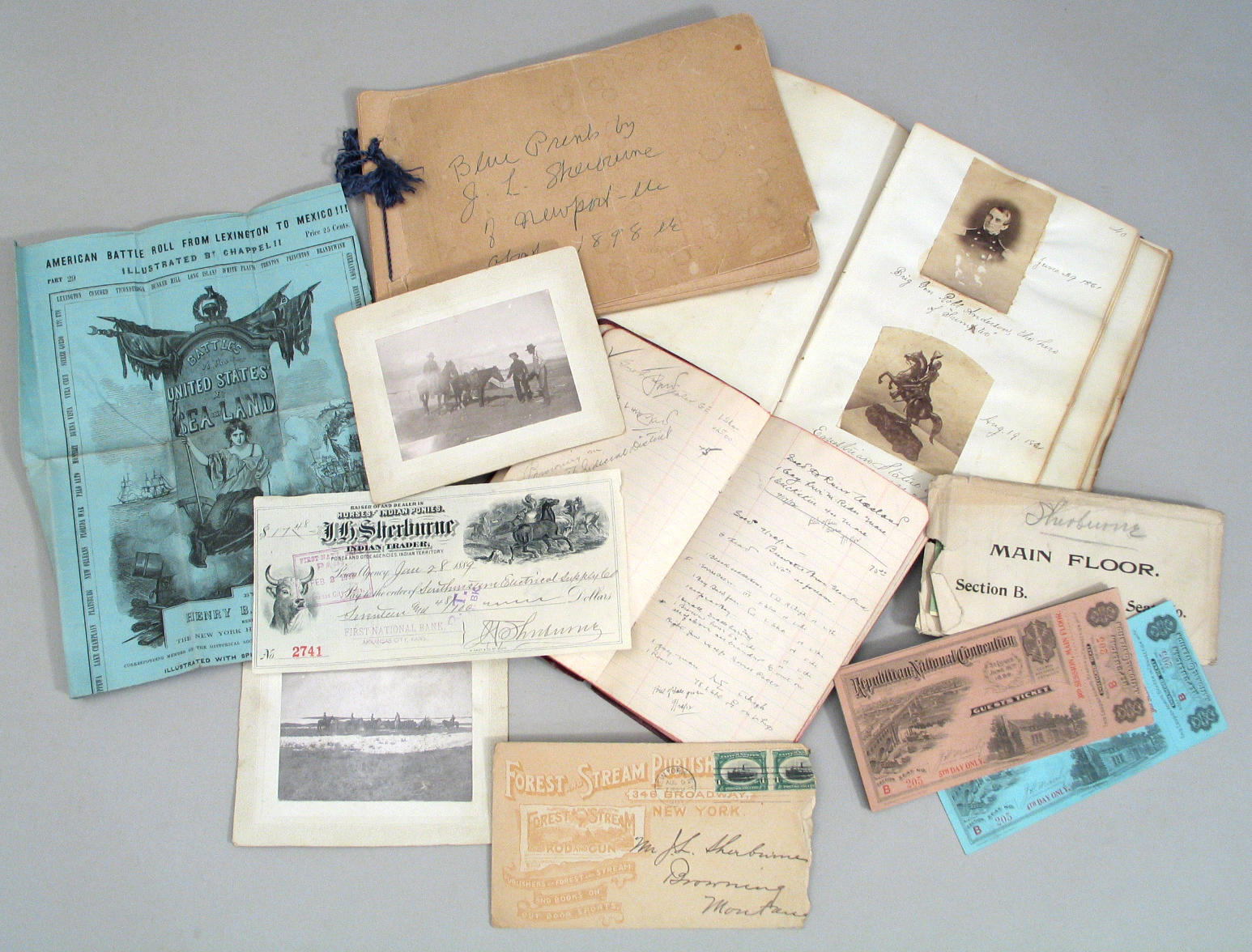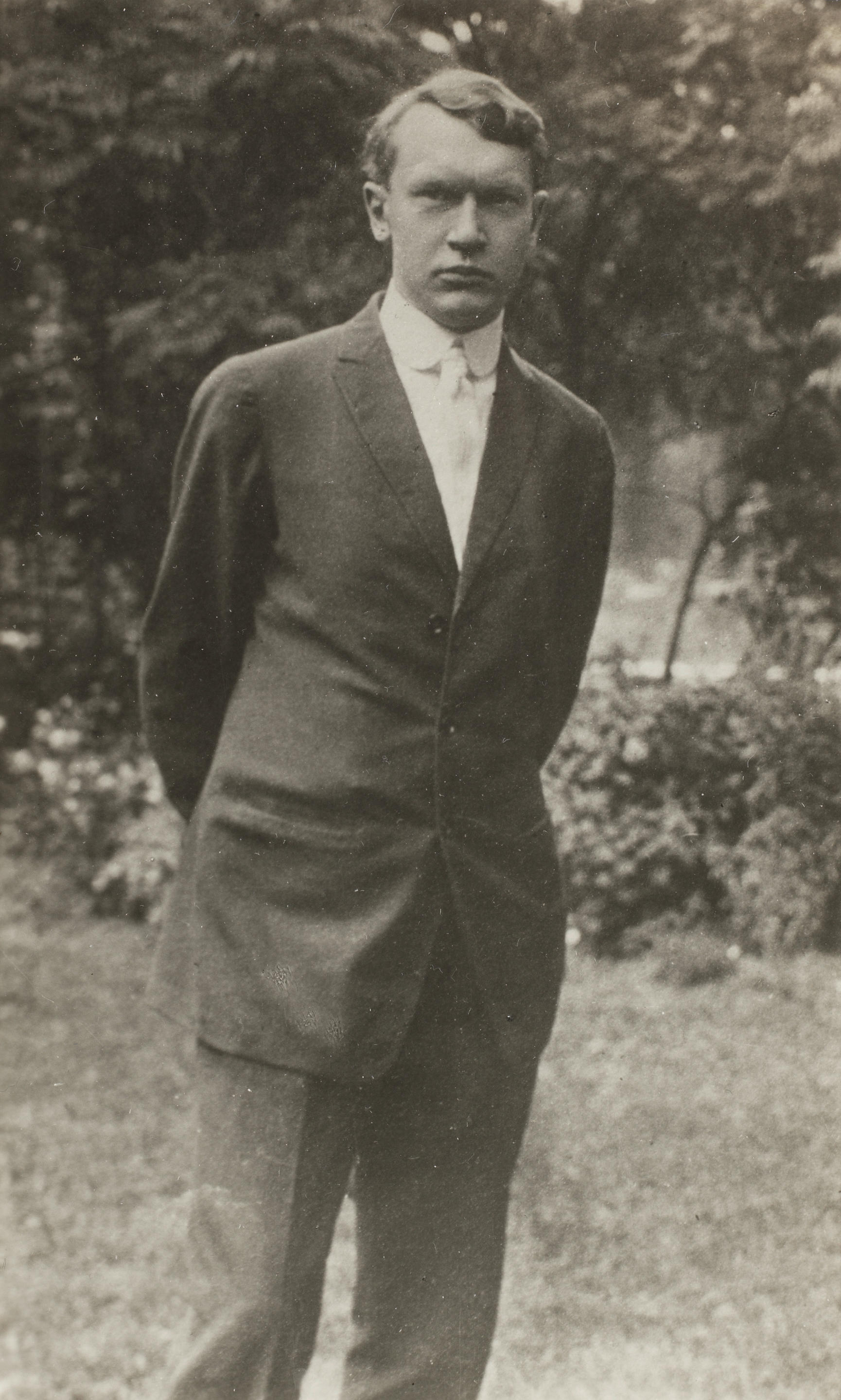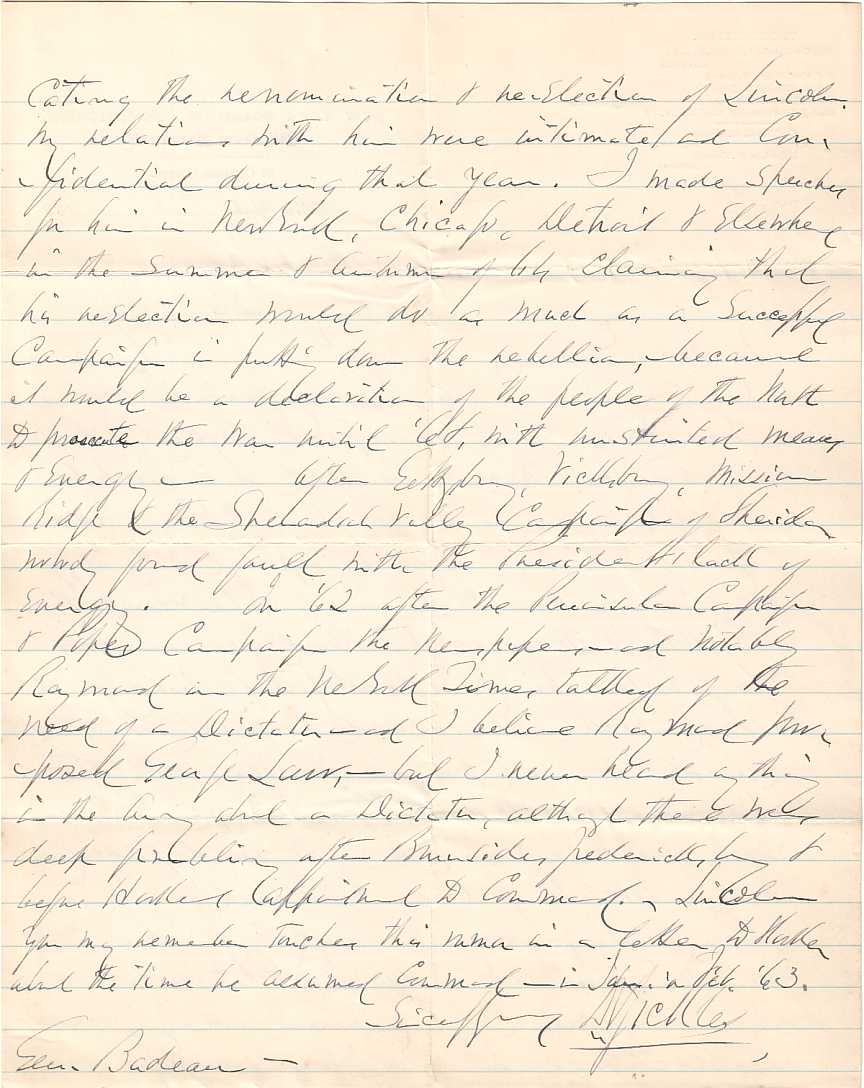LINCOLN, Abraham. Autograph quotation signed ("A. Lincoln"), A KEY PASSAGE OF HIS SECOND INAUGURAL ADDRESS, written in the autograph album of Secretary of the Interior John P. Usher (1816-1889) of Indiana, which also contains inscriptions and signatures of Vice-President Andrew Johnson and 73 others including Mark Twain, four additional Presidents (U.S. Grant, Benjamin Harrison, Theodore Roosevelt, Woodrow Wilson), cabinet members, Senators and Congressmen, Army and Naval officers, [Washington, D.C.], n.d. [Lincoln's inscription undated, but ca. 4 March 1865]. 8vo (9 3/8 x 5½ in.), Lincoln's inscription and signature on page [5] of the album, Andrew Johnson's directly below. THE ALBUM: 170 blank pages of good quality bond paper, gold-printed title-page reading "Autographs J.B. Lippincott & Co." (the glossy coating of that page oxidized as usual), bound in black morocco leather, covers with gilt and blind-tooled borders, "Autographs" in gilt decorative lettering in the center of each cover, spine richly gilt with dots, stars and small floral tools, page edges gilt, extremities rubbed, front cover detached. "AND THE WAR CAME": A KEY PASSAGE FROM LINCOLN'S SUBLIME SECOND INAUGURAL ADDRESS "Both parties deprecated war; but one of them would make war, rather than let the nation survive, and the other would accept war rather than let it perish. And the war came. Abraham Lincoln." An album evidently begun by Secretary of the Interior Usher at the time of Lincoln's 1865 inauguration, containing the memorable passage by which Lincoln eloquently explains--in the simplest fashion possible--the clash of unyielding, irreconcilable ideologies which brought on "this terrible war." The Second Inaugural, which stands with the Gettysburg Address at the pinnacle of Lincoln's achievements as an orator, owes much to the events of the months which preceded its writing. By the summer of 1864, after three years of bloody war, the vast Union armies seemed hopelessly mired in the entrenchments before Petersburg. The war to preserve the Union seemed unwinnable in spite of recent, costly Union victories and the terrible toll of lives already exacted. It appeared to most observers--as it did to the President himself--that Lincoln had no chance of being re-elected to a second term. The Democratic party, capitalizing on the profound war-weariness of the Northern electorate, drafted a platform calling for peace "at the earliest possible moment," while talk of compromise on the issue of slavery and even acquiescence with secession itself was rampant. By November, though, the situation had changed drastically. Sherman's armies had battered their way through Confederate defenses to take Atlanta, the symbolic heart of the South. Lincoln made several astute changes in the cabinet and worked diligently to rally his support in Congress and within the Republican party. On election day, November 8, with the votes of thousands of furloughed Union soldiers swelling the ballot returns, Lincoln won a sweeping victory, garnering 221 electoral votes to George McClellan's meager 21. Four months later, by the time of his inauguration, there were unmistakable signs that the Confederacy's strength was rapidly crumbling. The end of the war, it appeared, was finally in sight. It was, then, with a profound sense of thankfulness, tempered by a painful awareness of the horrific human suffering wrought by the war, an almost Biblical sense of the war as retribution for the sin of human slavery and a humbling sense of the magnitude of the task of reconstruction soon to face President and nation that Lincoln wrote his Second Inaugural Address, delivered from the east portico of the Capitol shortly after mid-day on 4 March 1865. Noah Brooks, the journalist who became close to Lincoln and was a witness, has left a famous account of the event: [THIS AND FOLLOWING PARAGRAPH IN BOLD, INDENTED SLIGHTLY] There was a sea of heads in the great plaza in front of the Capitol, as far as th
LINCOLN, Abraham. Autograph quotation signed ("A. Lincoln"), A KEY PASSAGE OF HIS SECOND INAUGURAL ADDRESS, written in the autograph album of Secretary of the Interior John P. Usher (1816-1889) of Indiana, which also contains inscriptions and signatures of Vice-President Andrew Johnson and 73 others including Mark Twain, four additional Presidents (U.S. Grant, Benjamin Harrison, Theodore Roosevelt, Woodrow Wilson), cabinet members, Senators and Congressmen, Army and Naval officers, [Washington, D.C.], n.d. [Lincoln's inscription undated, but ca. 4 March 1865]. 8vo (9 3/8 x 5½ in.), Lincoln's inscription and signature on page [5] of the album, Andrew Johnson's directly below. THE ALBUM: 170 blank pages of good quality bond paper, gold-printed title-page reading "Autographs J.B. Lippincott & Co." (the glossy coating of that page oxidized as usual), bound in black morocco leather, covers with gilt and blind-tooled borders, "Autographs" in gilt decorative lettering in the center of each cover, spine richly gilt with dots, stars and small floral tools, page edges gilt, extremities rubbed, front cover detached. "AND THE WAR CAME": A KEY PASSAGE FROM LINCOLN'S SUBLIME SECOND INAUGURAL ADDRESS "Both parties deprecated war; but one of them would make war, rather than let the nation survive, and the other would accept war rather than let it perish. And the war came. Abraham Lincoln." An album evidently begun by Secretary of the Interior Usher at the time of Lincoln's 1865 inauguration, containing the memorable passage by which Lincoln eloquently explains--in the simplest fashion possible--the clash of unyielding, irreconcilable ideologies which brought on "this terrible war." The Second Inaugural, which stands with the Gettysburg Address at the pinnacle of Lincoln's achievements as an orator, owes much to the events of the months which preceded its writing. By the summer of 1864, after three years of bloody war, the vast Union armies seemed hopelessly mired in the entrenchments before Petersburg. The war to preserve the Union seemed unwinnable in spite of recent, costly Union victories and the terrible toll of lives already exacted. It appeared to most observers--as it did to the President himself--that Lincoln had no chance of being re-elected to a second term. The Democratic party, capitalizing on the profound war-weariness of the Northern electorate, drafted a platform calling for peace "at the earliest possible moment," while talk of compromise on the issue of slavery and even acquiescence with secession itself was rampant. By November, though, the situation had changed drastically. Sherman's armies had battered their way through Confederate defenses to take Atlanta, the symbolic heart of the South. Lincoln made several astute changes in the cabinet and worked diligently to rally his support in Congress and within the Republican party. On election day, November 8, with the votes of thousands of furloughed Union soldiers swelling the ballot returns, Lincoln won a sweeping victory, garnering 221 electoral votes to George McClellan's meager 21. Four months later, by the time of his inauguration, there were unmistakable signs that the Confederacy's strength was rapidly crumbling. The end of the war, it appeared, was finally in sight. It was, then, with a profound sense of thankfulness, tempered by a painful awareness of the horrific human suffering wrought by the war, an almost Biblical sense of the war as retribution for the sin of human slavery and a humbling sense of the magnitude of the task of reconstruction soon to face President and nation that Lincoln wrote his Second Inaugural Address, delivered from the east portico of the Capitol shortly after mid-day on 4 March 1865. Noah Brooks, the journalist who became close to Lincoln and was a witness, has left a famous account of the event: [THIS AND FOLLOWING PARAGRAPH IN BOLD, INDENTED SLIGHTLY] There was a sea of heads in the great plaza in front of the Capitol, as far as th












Try LotSearch and its premium features for 7 days - without any costs!
Be notified automatically about new items in upcoming auctions.
Create an alert